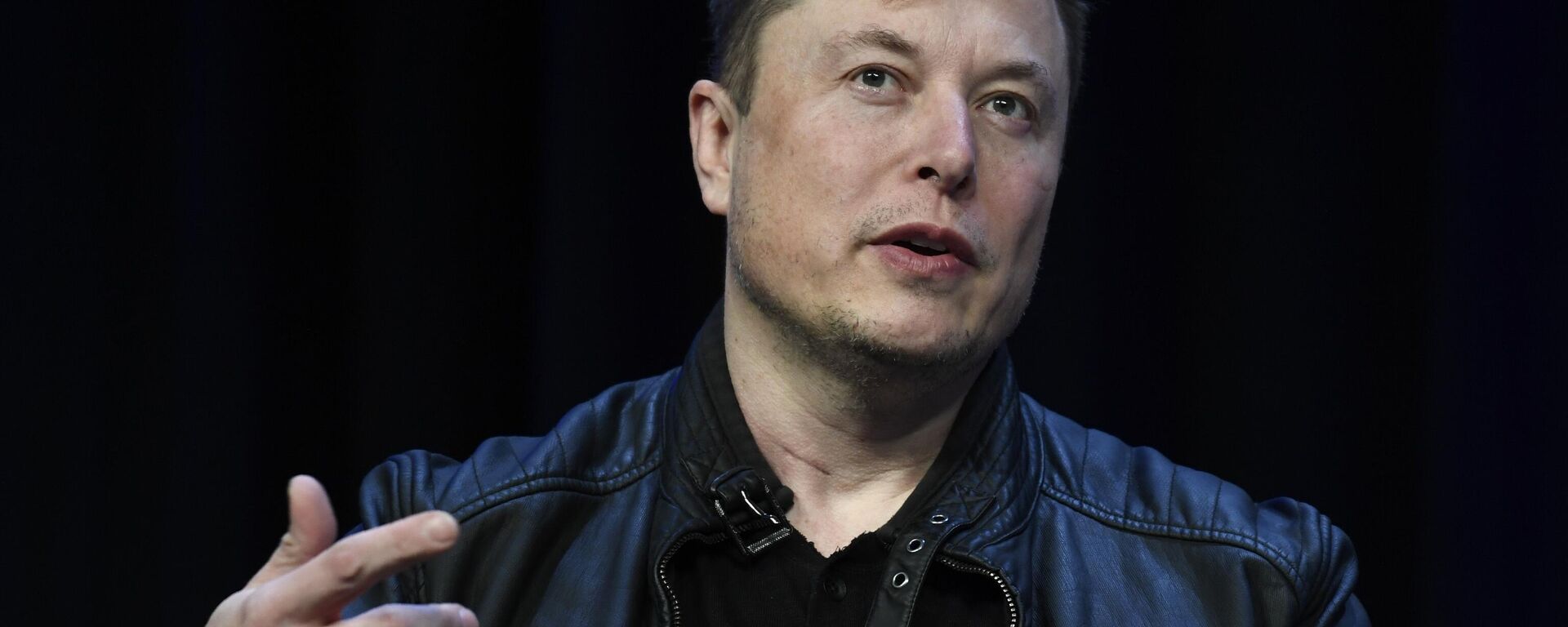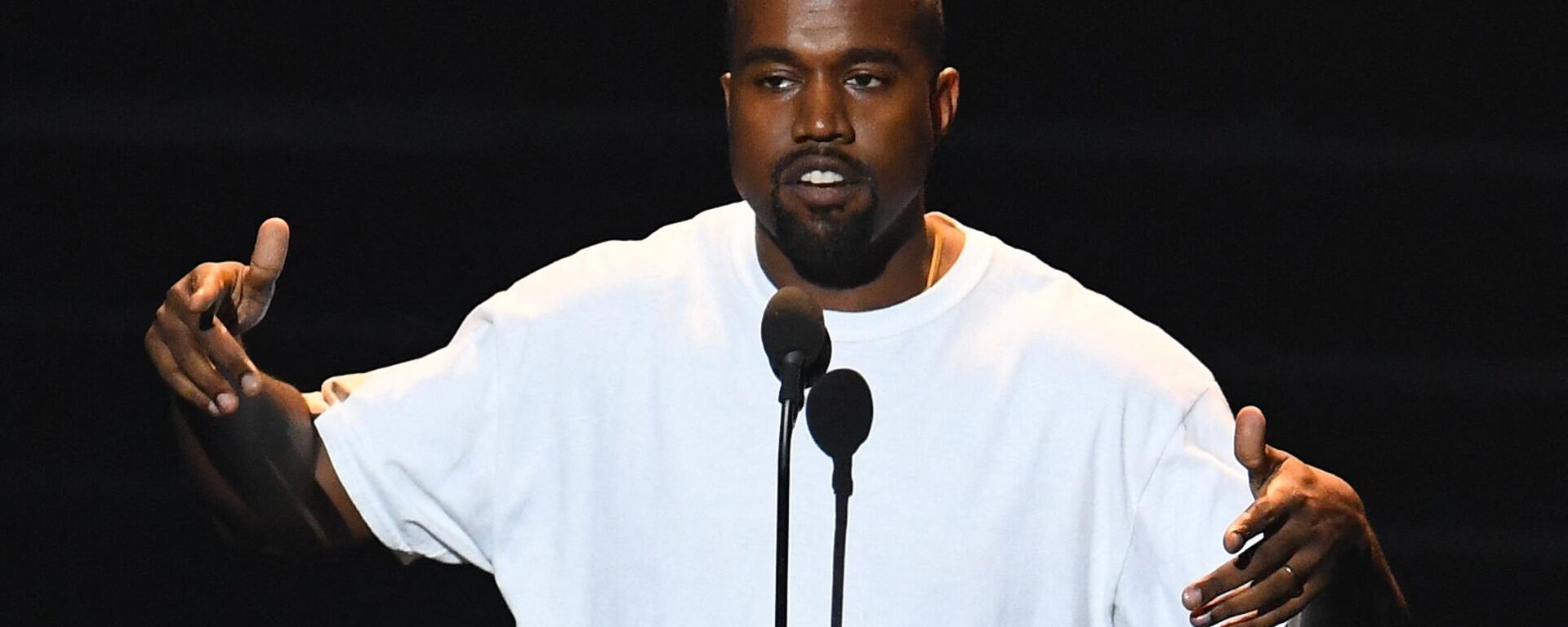https://sputnikglobe.com/20231121/musk-sues-media-watchdog-for-maliciously-manufactured-report-showing-ads-next-to-neo-nazi-posts-1115115774.html
Musk Sues Media Watchdog for ‘Maliciously Manufactured’ Report Showing Ads Next to Neo-Nazi Posts
Musk Sues Media Watchdog for ‘Maliciously Manufactured’ Report Showing Ads Next to Neo-Nazi Posts
Sputnik International
Elon Musk’s X, formerly known as Twitter, has struggled to balance the books for years, and after the billionaire bought the company last fall, he announced a series of sweeping policy changes designed to increase revenue.
2023-11-21T19:22+0000
2023-11-21T19:22+0000
2023-11-21T19:20+0000
americas
elon musk
media matters
us
nazi
x (formerly twitter)
lawsuit
https://cdn1.img.sputnikglobe.com/img/07e7/09/1d/1113799816_0:0:3072:1728_1920x0_80_0_0_6e6a93ef13a58bd0222fdf8193678063.jpg
X has filed a lawsuit against media watchdog group Media Matters and one of its writers after the group published a report highlighting instances of major advertisers’ ads appearing next to pro-Nazi posts on the site, causing several of them to pull their promotions from the site.The lawsuit, filed on Monday for unknown reasons in the US District Court for the Northwestern District of Texas, alleges that the Washington, DC-based Media Matters “knowingly and maliciously manufactured” images of ads next to pro-Nazi posts “to drive advertisers from the platform and destroy X Corp,” which is based in San Francisco, California.This, the company said, generated 13 to 15 more advertisements per hour than the average user, eventually resulting in the side-by-side screenshots published in Media Matters’ November 16 report.In that report, Media Matters showed ads from companies like Xfinity, Apple, IBM, and Oracle, appearing in feeds before or after posts that glorified the Nazi party, ideology or Nazi leader Adolf Hitler. The organization drew a connection between this serendipity, Musk’s recent endorsement of an antisemitic conspiracy theory on his personal X account, and X’s reinstatement of several antisemitic pages.On X’s “Ads Help Center” page, the company explains that “your activity on X, the information you provide to X, and our relationships with ad partners all help make promoted content more relevant for you.” Meaning that some, but not all, of the ads users see on the platform are targeted for them.In the days after Media Matters’ report was published, IBM and Apple both announced they were “pausing” or “suspending” their ad campaigns on X.Media Matters has criticized X for years, but that criticism became much more pronounced after Musk bought the platform in October 2022 and reversed the banning of many accounts belonging to right-wing figures, including white supremacists like Nick Fuentes. The organization has also blasted X for relaxing its rules against hate speech, particularly against trans people and Jews, which have skyrocketed in the last year. Musk has claimed such posts are down-rated so nobody sees them.When Musk bought the company, it was deeply in the red, and he has made several changes designed to increase revenues, from pressuring users to opt for paid “Twitter Blue” accounts to attempting to attract new advertisers to the platform. However, amid the numerous controversies since Musk took over, many companies have either temporarily or permanently pulled their ads from X.
https://sputnikglobe.com/20231028/musk-reportedly-eyeing-turning-x-into-fully-fledged-dating-site-by-2024-1114541435.html
https://sputnikglobe.com/20230228/demand-for-kanye-west-sneakers-rising-despite-anti-semitic-scandals-1107863931.html
americas
Sputnik International
feedback@sputniknews.com
+74956456601
MIA „Rossiya Segodnya“
2023
News
en_EN
Sputnik International
feedback@sputniknews.com
+74956456601
MIA „Rossiya Segodnya“
Sputnik International
feedback@sputniknews.com
+74956456601
MIA „Rossiya Segodnya“
media matters lawsuit, twitter neo-nazi, antisemitism on twitter, elon musk lawsuit
media matters lawsuit, twitter neo-nazi, antisemitism on twitter, elon musk lawsuit
Musk Sues Media Watchdog for ‘Maliciously Manufactured’ Report Showing Ads Next to Neo-Nazi Posts
Elon Musk’s social media company X, formerly known as Twitter, has struggled to balance the books for years, and after the billionaire bought the company last fall, he announced a series of sweeping policy changes designed to increase revenue. However, they’ve brought in new criticisms, too.
X has filed a lawsuit against media watchdog group Media Matters and one of its writers after the group published a report highlighting instances of major advertisers’ ads appearing next to pro-Nazi posts on the site, causing several of them to pull their promotions from the site.
The lawsuit,
filed on Monday for unknown reasons in the US District Court for the Northwestern District of Texas, alleges that the Washington, DC-based Media Matters “knowingly and maliciously manufactured” images of ads next to pro-Nazi posts “to drive advertisers from the platform and destroy X Corp,” which is based in San Francisco, California.
While X admits that the ads did, in fact, appear next to the posts in question, it alleges in the suit that Media Matters “resorted to endlessly scrolling and refreshing its unrepresentative, hand-selected feed” of “a small subset of users consisting entirely of accounts in one of two categories: those known to produce extreme, fringe content, and accounts owned by X’s big-name advertisers.”
This, the company said,
generated 13 to 15 more advertisements per hour than the average user, eventually resulting in the side-by-side screenshots published in Media Matters’
November 16 report.

28 October 2023, 01:07 GMT
In that report, Media Matters showed ads from companies like Xfinity, Apple, IBM, and Oracle, appearing in feeds before or after posts that glorified the Nazi party, ideology or Nazi leader Adolf Hitler. The organization drew a connection between this serendipity, Musk’s
recent endorsement of an antisemitic conspiracy theory on his personal X account, and X’s reinstatement of several antisemitic pages.
On X’s
“Ads Help Center” page, the company explains that “your activity on X, the information you provide to X, and our relationships with ad partners all help make promoted content more relevant for you.” Meaning that some, but not all, of the ads users see on the platform are targeted for them.
In the days after Media Matters’ report was published, IBM and Apple both announced they were “pausing” or “suspending” their ad campaigns on X.
In response to the suit, Media Matters President and CEO Angelo Carusone said on X that it was “a frivolous lawsuit meant to bully X’s critics into silence. Media Matters stands behind its reporting and look[s] forward to winning in court.”
Media Matters has criticized X for years, but that criticism became much more pronounced after Musk bought the platform in October 2022 and reversed the banning of many accounts belonging to right-wing figures, including
white supremacists like Nick Fuentes.
The organization has also blasted X for relaxing its rules against hate speech, particularly against trans people and Jews, which have skyrocketed in the last year. Musk has claimed such posts are down-rated so nobody sees them.

28 February 2023, 09:04 GMT
When Musk bought the company, it was
deeply in the red, and he has made several changes designed to increase revenues, from pressuring users to opt for paid “Twitter Blue” accounts to attempting to attract new advertisers to the platform. However, amid the numerous controversies since Musk took over,
many companies have either temporarily or permanently pulled their ads from X.




